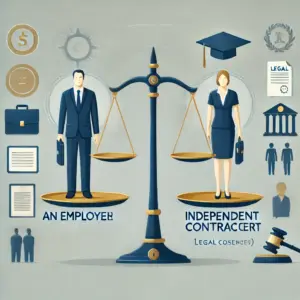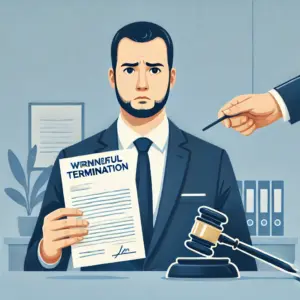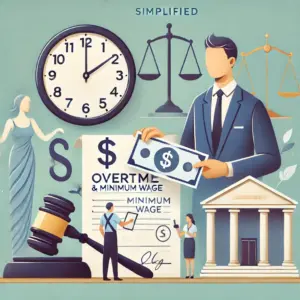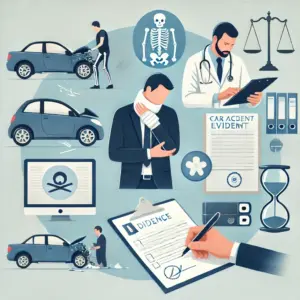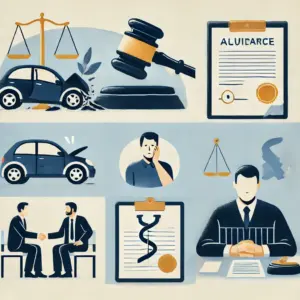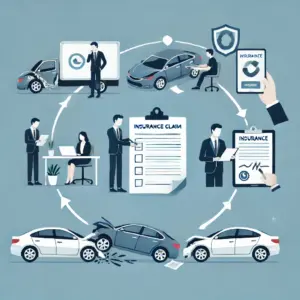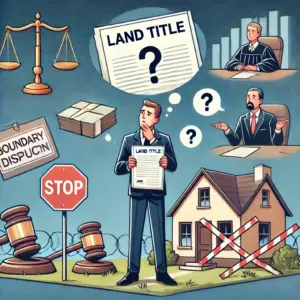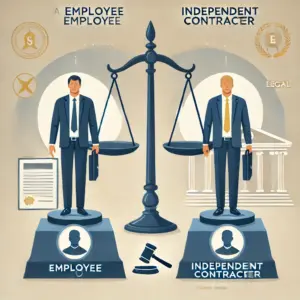 It can be difficult to tell an employee from an independent contractor. Many companies misclassify. This leads to severe legal issues. Both for the worker and the company. It is important to know the differences. It keeps everyone safe.
It can be difficult to tell an employee from an independent contractor. Many companies misclassify. This leads to severe legal issues. Both for the worker and the company. It is important to know the differences. It keeps everyone safe.
Defining the Terms
A company employs an employee. They are given regular working hours. They use equipment belonging to the company. They are paid a set salary on a regular basis. An independent contractor is none of these things. They are their own boss. They determine their working hours. They use equipment that they possess. They are paid on a job-to-job basis.
Control: The Major Consideration
The most significant difference is control. Who is in control of the work? If the company is controlling the “how,” it is probably an employee. If the worker is in control of the “how,” it is probably a contractor. It is a critical difference. Courts are extremely interested in this.
Behavioural Control: What Matters
Behavioural Control: Same as training. Does the employer train? Do they direct? If so, then it’s an employee relationship. Degree of instruction is significant. Higher degree of control, the more employees it is.
Financial Control: Who Controls the Money
Financial control looks at payment practices. Who buys equipment? Who receives bills? If the worker buys his or her own equipment, it’s an employee red flag. If everything is provided by the company, it’s a contractor red flag.
Relationship: The Nature of the Work
The relationship’s nature also kicks in. Is it supported by a written contract? Is it continuous or project-by-project? Are benefits offered? Continuous work and benefits indicate an employee. Project-by-project work and no benefits indicate a contractor.
Misclassification: A Common Mistake
Companies misclassify employees. They do this to save money. They do not have to pay payroll taxes. They do not have to pay benefits. They do not have to pay overtime. This is a big problem. It is illegal.
Legal Consequences: What Companies Face
Misclassification leads to lawsuits. Employees can sue for unpaid wages. Employees can sue for unpaid benefits. Employees can sue for unpaid overtime. The IRS can assess penalties. State labour departments can assess penalties. Companies can be hit with back taxes. They can be hit with fines.
Legal Consequences: What Workers Face
Employees can lose out on benefits. They can lose out on overtime pay. They can lose out on unemployment benefits. They can lose out on workers’ compensation. They can face tax issues. They can face unforeseen expenses.
IRS Guidelines: What They Say
The IRS has rules. They use the “common law” test. They examine the control factors. They examine the behavioural control. They examine the financial control. They examine the relationship. These rules decide worker status.
State Laws: Differences Exist
State laws are not always the same as federal laws. They do not have as many laws in certain states. They offer special tests in certain states. Special punishment in certain states. Check your state law. They contain more information.
Worker Rights: What You Need to Know
Employees have a right to correction of classification. Employees have a right to correction of remuneration. Employees have right to due benefits. Employees have a right to grievance. Employees have a right to representation by counsel.
Business Best Practices: How to Stay Out of Trouble
The companies should audit worker classifications. They should use comprehensible contracts. They should be aligned with worker control. They should seek lawyers. They should follow IRS guidelines. They should adhere to state laws.
Audits and Investigations: What to Expect
The IRS audits corporate businesses. State labour departments audit. Employees complain. These result in audits. Businesses must be prepared. They must have clean books. They must have open books.
Obtaining Legal Counsel: When to Seek Assistance
Companies need to speak to lawyers prior to classifying workers. Workers need to speak to lawyers if they believe that their classification was erroneous. Lawyers will help with complications. Lawyers will help with protecting your rights.
Why Compliance Is Important: Protecting Everyone
Employee classification needs to be accomplished. It is protecting companies. It is protecting workers. It is encouraging fair treatment. It opens the door to the legal solution. It is encouraging healthy work environments.
Conclusion
We need to research the categorization of workers. The businesses and workers need to know their rights. They also need to research their obligations. Do not let misclassification give rise to legal problems. Learn. Comply. Safeguard your rights.

